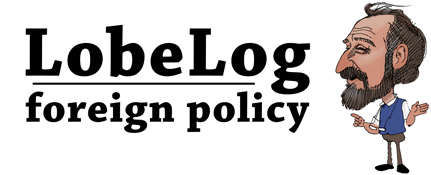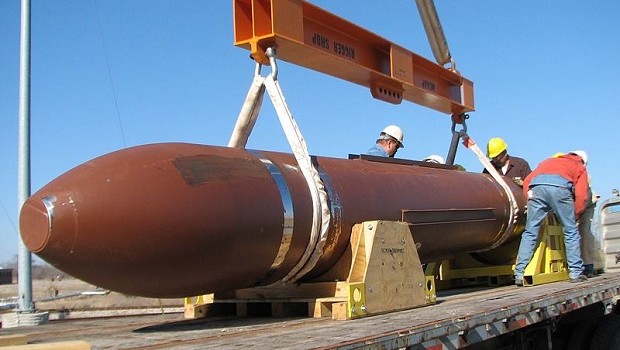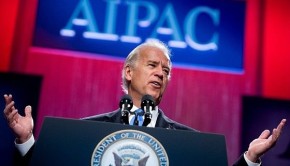

Published on September 3rd, 2015 | by Jim Lobe
9AIPAC’s Plan B?
by Jim Lobe
*Editor’s Note: Read an accompanying post to this article here.
A number of readers have complained that I buried the important news in my last post marking Mikulski’s announcement Wednesday. So I’m reposting below that part of the Mikulski piece that dealt with what appears to be AIPAC’s and the opposition’s most likely “Plan B” for congressional action, aimed chiefly at those Democrats who feel queasy about their decision to support the White House and vote against the pending resolution to reject the JCPOA.
A summary of a draft bill, which I obtained from a source who asked to remain anonymous, is circulating that is designed (almost certainly by AIPAC) to appeal to those Democrats eager to “kiss and make up” after their defiance of the most powerful Israel lobby group (whose reputation for omnipotence just took a very heavy hit) and its donors. Although most of the bill appears to be innocuous and consistent with the administration’s own intentions, it also contains a number of “poison pills,” which, if approved, appear calculated to raise new obstacles to implementation and Tehran’s confidence that the U.S. will fully comply with both the spirit and the letter of the JCPOA.
With proposed banking sanctions, for example, it appears to do what Kagan and the policy director of the neoconservative Foreign Policy Initiative (FPI), Juan Zarate, have urged with respect to codifying existing non-nuclear sanctions and reducing or eliminating the president’s waiver authority. It also would set up a process for “expedited procedures” for Congress to pass new terrorism sanctions against Iran under certain circumstances, and also create a coordinator for compliance whose responsibilities would not only be to oversee Iran’s implementation of the JCPOA but also report on non-nuclear issues outside the scope of the agreement.
Yet another provision would authorize the delivery to Israel of Washington’s most powerful Massive Ordinance Penetration munitions (MOPs) and the means to deliver them against Iran’s nuclear facilities, a move that administration officials have long said they strongly oppose. This would be one part of a much- enhanced package of military assistance for Israel.
Other provisions appear designed to “renegotiate” certain provisions of the JCPOA; for example, by eliminating the exemption of any contracts agreed to between Iran and foreign companies during the implementation phase in the event that sanctions are “snapped back.” It also requires Iran to abide by the Nuclear Non-Proliferation Treaty’s (NPT) Additional Protocol as of “adoption day,” even if the Iranian parliament has not yet ratified the Protocol.
We hear that the sponsors intend to push this through Congress as a companion to the disapproval resolution. The idea is to enable nervous Democrats to demonstrate their strong support for Israel and their undiluted distrust and hostility toward Iran. The fear is that if this measure isn’t passed now, then it could prove much more difficult to pass once Iran begins to implement the agreement.
Here is a summary of the draft bill which, as I understand it, is still very much a work in progress.
The Iran Policy Oversight Act of 2015Building on the bipartisan commitment to oversight outlined in the Iran Nuclear Agreement Review Act of 2015 – PL 114-17Sets the U.S.’s going-forward Iran policy regarding the nuclear issue: The United States will never permit Iran to obtain a nuclear weapon, and all options available to the United States, including the military option, remain available.Clarifies key interpretive issues in the JCPOA, which would also apply to subsequent agreements, including:No sanctions relief will be provided to Iran until it meets its commitments related to resolution of PMD [possible military dimensions] issues.Any production of HEU by Iran would be a violation of the JCPOA.Nothing in the JCPOA limits or curtails Congress’ ability to pass sanctions legislation addressed to legitimate foreign policy purposes, including sanctions related to terrorism, human rights, and Iran’s ballistic missile activities.There is no “grandfather clause” that would shield ongoing sanctionable activities by foreign firms in the event of a snap-back of Iran sanctions.The JCPOA commits Iran to abide by all the provisions of the Additional Protocol of the NPT as of “adoption day,” regardless of whether the Iranian parliament approves the Additional Protocol.Requires the Administration to submit:A ten-year regional strategy for Countering Conventional and Asymmetric Iranian Activity and Threats in the Middle East and North Africa within six months, and every two years thereafter,Report[s] detailing Iran’s use of funds received through sanctions relief and changes in funding for regional activities and support for terrorism,Reports detailing Iran’s R&D activities as well as estimated nuclear weapons capability breakout time, andA report addressing the IAEA’s resolution of the PMD issue.Explicitly authorizes additional, specific security assistance to Israel, including bunker-busting MOPs, to ensure the President can and should take all necessary and appropriate measures to ensure Israel has the means and capacity to defend itself against nuclear and other threats from Iran.Continues in effect banking sanctions addressed to ballistic missile proliferation and terrorism sanctions, unless the President certifies that designated financial institutions have ceased their support for missile proliferation and terrorism. Also continues in effect sanctions related to human rights abuses.Requires the President to seek multilateral arrangements to both maintain control of exports related to conventional arms and ballistic missiles to Iran, and ensure an effective snap-back policy to respond to any non-compliance incidents as well as breach of the JCPOA by Iran.Puts into place expedited procedures for consideration of new terrorism sanctions against Iran if Iran:1) directs or conducts an act of terrorism against the U.S., or2) substantially increases its operational or financial support for a terrorist organization that threatens U.S. interests or allies.Requires the President to appoint a Coordinator for Compliance within the Department of State to:1) coordinate all activities related to implementation of the JCPOA and any subsequent related agreements, and2) monitor human rights abuses and activities relating to support for acts of international terrorism by the government of Iran.
© 2007-2014 LobeLog.com









9 Responses to AIPAC’s Plan B?
Show Comments →